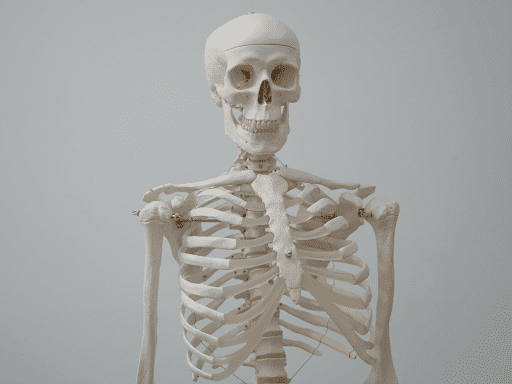Taking care of our bones is essential to maintaining a healthy body. Bones give our bodies the structure needed to function properly while also helping protect our organs. As we get older, it becomes even more important to protect bone health and reduce the risk of developing osteoporosis.
Around the age of 30, human beings reach their peak levels of bone mass. After this peak, our bones will continue to lose a little bit of bone mass for the rest of our lives. If we don’t take care of our bones, they can become increasingly weak and brittle over time.
Thankfully, we can take steps to reduce bone mass loss by paying attention to some key lifestyle and nutritional habits. We wanted to highlight some great ways in which you can keep your bones strong and healthy over the years. Keep reading to learn more!
Eat Foods That Support Bone Health

To keep our bones strong, it’s important to nourish them with the right foods. We want to keep our bones dense and rich in calcium and minerals. Low bone density can lead to low bone mass and osteoporosis (weak and brittle bones).
Vegetables are a great source of both calcium and minerals. In fact, focusing on a high vegetable diet has been shown to boost bone health in childhood, young adults, and older women.
Dark leafy greens are particularly great for bone health since they contain both calcium and vitamin K, which is known to reduce osteoporosis risk. Try out some bok choy, kale, or collard greens to get started.
Magnesium, zinc, and vitamin C are also great for building strong bones. You can find them in many different fruits and vegetables. Protein is another important nutrient for bones and makes up 50% of our bone composition. Not getting enough protein can reduce how much calcium gets absorbed by our bones and harm bone structure.
Some great foods for bone health include:
- Almonds
- Kale
- Tofu
- Legumes (beans, peas, lentils)
- Cheese
Practice Strength Training

Exercise is vitally important for maintaining bone health for adults. Strength training, in particular, can help human beings build strong muscles and strong bones. These activities can slow bone loss and even help build bones back up by stimulating bone-forming cells into action.
For older people looking to reduce their risk of developing osteoporosis, taking up strength training can be a great idea. Strength training helps weaker bones get strong and avoid breaking easily. For example, body parts such as the hips, wrists, and spine are all vulnerable to bone loss and benefit tremendously from resistance training.
Exercises that are weight-bearing also help build strong bones. These can include activities such as walking, jogging, and stair climbing. Include them in your weekly routine to reap their bone-strengthening benefits.
Limit Drinking Alcohol & Smoking

Drinking too much alcohol and smoking have been shown to have damaging effects on bone health and density. It’s important to reduce the intake of both substances to promote strong bones, especially if someone has osteoporosis. People dealing with bone health issues should discuss their drinking and/or smoking with their doctors to develop a plan for improving their well-being.
Drinking more than 3 ounces of alcohol per day can lead to bone loss (about 2-3 drinks). If you are a woman, avoid drinking more than one alcoholic drink each day. If you are a man, avoid drinking more than two alcoholic drinks a day. Smoking in any amount has a damaging effect on bone density, so it’s best to eliminate the habit.
Conclusion
Bone health is vital to our overall health and well-being. Bones support our bodies in so many ways, and it’s important that we find ways to keep them strong and dense. Start by focusing on bone-strengthening foods such as dark, leafy vegetables. Consuming these regularly will build bone density and bone minerals.
Exercising consistently and practicing strength training also does wonders for bone health. Staying active keeps bones strong and less prone to becoming weak and brittle. Drinking and smoking, on the other hand, can be quite detrimental to bone health so it’s best to limit or eliminate them from our habits if possible.

AUTHOR
Maneeza Hasan Maneeza is a content marketing professional from Los Angeles, California. She loves to create content that helps people live better lives. To learn more about her please visit her website at www.maneeza.com

